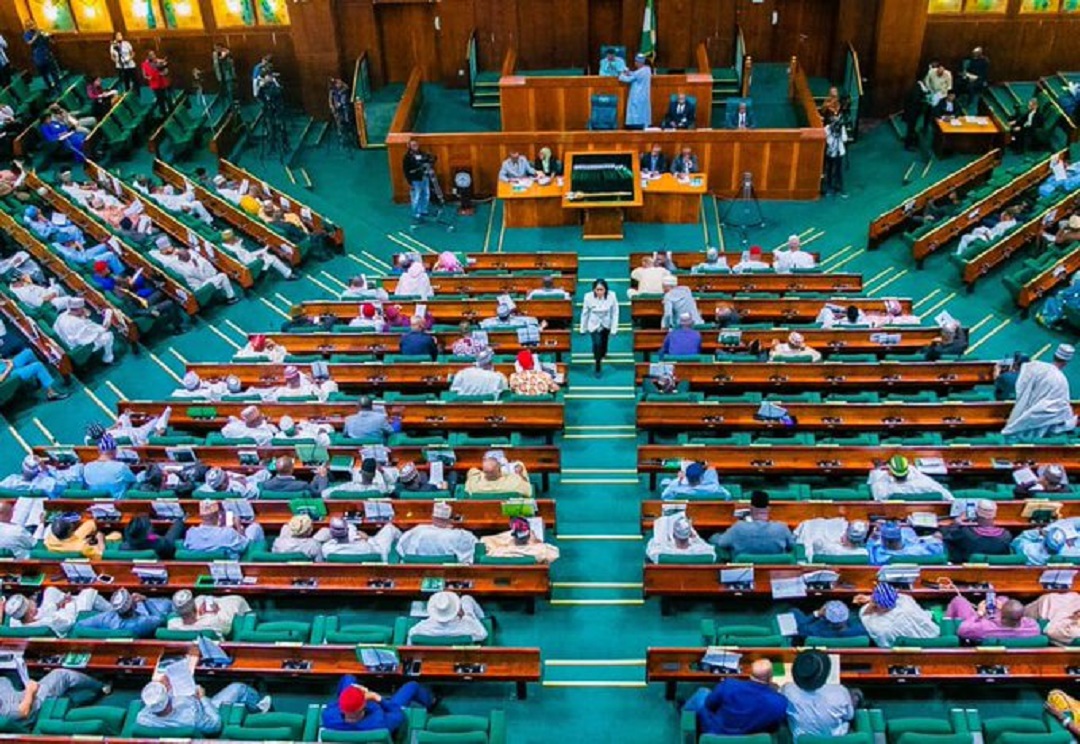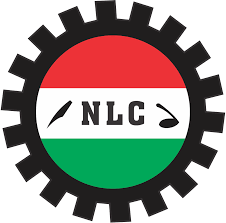News
Ajaokuta Steel Mill: FG to probe N33bn electricity debt, targets fresh N35bn investments
…As Tinubu approves restart of light steel section
The Federal Government is set to probe the accumulated N33 billion electricity debut incurred on the moribund Ajaokuta Light Steel mill.
The Ajaokuta Steel Company in Kogi State of Nigeria was envisaged to serve as the bedrock of Nigeria’s industrialisation.
In 2016, President Muhammadu Buhari fulfilled his campaign promise on Ajaokuta steel by settling the legal bottleneck surrounding the companies out of court.
However, the Federal Government signed a modified concession agreement with GINL to enable the firm to retain the National Iron Ore Mining Company, Itakpe.
The modified seven-year concession agreement was signed on August 1, 2016, while the federal government took over the Ajaokuta steel.
Minister of Steel Development, Prince Shuaibu Abubakar Audu, on Thursday speaking to State House Correspondents after a meeting with President Bola Tinubu Abuja however gave updates on the current administration’s plan for the steel mill.
According to Shuaibu, the Federal Government aims to raise about N35 billion for the Ajaokuta Light Steel mill through the local financial market.
He said that the mill would produce iron rods to be used in the road construction programme of the administration aimed at creating thousands of jobs in the country.
“The Minister of Works, Sen. David Umahi, has already written a letter through his ministry, guaranteeing that there will be off takers in the iron rods that are being produced.
“Basically, the precedent is on the Renewed Hope Agenda which the Minister of Works is driving plans to construct about 30,000 kilometres of roads across Nigeria, where they will need about 7 million metric tonnes of iron rods.
“We can produce about 400,000 tonnes of those iron rods in Ajaokuta if we’re able to restart the steel plant. Mr President gave approval for us to raise money locally,” he said.
Audu said that talks were in top gear with the local financiers, adding that it would be finalised in a number of weeks “so as to hit the ground running.”
The Minister said that there was also a joint meeting with the Minister of Defence, Muhammed Badaru, with the President on the issue of the Ajaokuta Steel plant.
He said that this was in respect of the building of military hardware, explaining that a Chinese firm has shown strong commitment towards the project.
“We’re setting up a military hardware capability in our Ajaokuta Steel plant, and based on that the Chinese people would help us to build that military hardware capability in one of the production units,” he said.
Audu said that the entire resuscitation of the steel plant would cost between $2 billion dollars to $5 billion dollars.
The minister added that discussion was also held about the commitment of a Chinese company during the G20 summit in India to invest $5 billion dollars in the Steel sector of the economy.
“We’re currently looking for land that is close to a gas station that has a port and that is close to the natural or mineral resources that they will invest in. Either they set up a greenfield or they acquire an existing plan, such as the Delta Steel plan.”
He said that the President has approved the setting up of a ministerial committee to oversee the realisation of this investment in the country.
Audu said that the committee would comprise of some critical stakeholders within the government, including the Ministers of Finance, Trade and Investments, Defence, Solid Minerals as well as Steel Development.
He added that the new investment was expected to create about 500,000 direct and indirect jobs.
On recent media reports on the cutting off of the Ajaokuta Steel Plant from the national grid, Audu said that the Federal Government would ensure that the issue was quickly resolved.
“So, part of what we plan to do is to sit down on the table in the next few days, as quickly as possible to be able to come up with a plan so that they can put it back on the grid.
“Putting things back in order is a gradual process. Ajaokuta cannot be revived overnight. This is a plant that has not been working for 45 years. It’s a difficult task to try and get it back on track.
“We need the support of everyone, including the electricity company to be able to help us to get this project back on track, so that we can create the thousands of jobs that we want for Nigerians,” he said.
He also hinted on Thursday that the Federal Government will investigate why the moribund Ajaokuta Steel Company Limited accumulated N33 billion in electricity debt, which caused the Transmission Company of Nigeria (TCN) to disconnect the company from the national grid.
The TCN had recently made the decision to disconnect the steel company over the debt owed to the Nigerian Bulk Electricity Trading PLC (NBET) and service providers.
The debt is made up of N33,071,002,129.49, comprising N30,849,749,981.01 for energy and capacity delivered by NBET and N2,221,252,148.48 owed to service providers.
Fielding questions from journalists, the minister said that the issue will be looked at to get to the bottom of it.
He wondered why the company would accumulate such debt on electricity consumption when it had not been operating at full capacity.
According to him, “I mean, these are some of the things that need to be looked into. As you mentioned, One of the things I spoke to the MD of Ajaokuta today, and this was one of the questions I asked, and we’re going to get to the bottom of it: why consume so much electricity in a place that is not operating at full capacity?
“Part of what we also need to do is that we’re trying to revive Ajaokuta in a collegiate system, in piecemeal, and so we may not have the capacity to be able to pay all those outstanding amounts immediately.
“Part of what the MD of Ajaokuta told me is that most of the money is in interest payments. And NBET, the electricity company that has disconnected it, is also a government agency.”
Noting the role of NBET in the disconnection, Shuaibu hinted that the government will not allow its agency to hinder the effort to revive the steel company, which has not been in operation for about 45 years.
“So, if we, as a government ministry and government agency, are trying to revive Ajaokuta, working hard to do that, we should not have another hand within the same government, making things very difficult for us.
“And so, part of what we plan to do is sit down on the table in the next few days as quickly as possible to be able to come up with a plan so that they can put it back on the grid and put things back in order.
“It is a gradual process. Ajaokuta cannot be revived overnight. This is an institution; this is a plant that has not been working for 45 years. It is a difficult task to try and get it back on track.
“So, we need the support of the entire government apparatus; we need the support of stakeholders; we need the support of everyone to be able to do this difficult job.
“This job is not one that I and Mr. President can do alone. We need the support of everyone, including the electricity company, to be able to help us get this project back on track so that we can create the hundreds of thousands of jobs I want to create for Nigerians.”
The Steel Development Minister also revealed that his ministry has received President Tinubu’s go-ahead to raise a committee to look for an appropriate site to set up a new steel plant in the country.
He recalled that the decision to establish the $5 billion plant was reached between the President and Jindal Steel of India on the sidelines of the last G20 summit.
Shuaibu said that representatives of Jindal Steel will be in the country soon, adding: “So, I briefed Mr. President, and I’ve met with representatives of Jindal Steel, and they’re very serious about their commitment.
“And we’re currently looking for land that is close to a gas station that has a port and is close to natural or mineral resources such as, you know, iron ore and the likes to be able to get them the ideal location.
“Either they set up a greenfield or they acquire an existing plant, such as, you know, the Delta steel plant.
“So, those are the things on the table. Mr. President has given us the go-ahead to set up a committee with some very critical stakeholders within the government, including the likes of the minister of finance, the CME, the Minister of Trade and Investments, the Minister of Defense, the Minister of Solid Minerals, and myself, to be able to get this thing running and get it off the ground.
“So, the Renewed Hope Agenda is here to stay. We think that if we’re able to complete all these projects that have been approved by Mr. President, we should be able to include the revival of Ajaokuta and create not less than 500,000 jobs, bringing billions of dollars into the economy.”
News
JUST IN: Student loan application portal opens May 24


The Federal Government, through the Nigerian Education Loan Fund, on Thursday night announced that May 24, 2024, was the official date for “the opening of a portal for student loan applications,” a statement signed by the media lead of the Fund, Nasir Ayantogo said.
Ayantogo, in a statement, said the opening of the application portal marks a significant milestone in the commitment of President Bola Tinubu to” fostering accessible and inclusive education for all Nigerian students.”
On June 12, 2023, Tinubu signed the Access to Higher Education Act, 2023, into law to enable indigent students to access interest-free loans for their educational pursuits in any Nigerian tertiary institution.
The move was in “fulfilment of one of his campaign promises to liberalise funding of education,” a member of the then Presidential Strategy Team, Dele Alake, said.
The Act, popularly known as the Students Loan Law, also established the Nigerian Education Loan Fund to process all loan requests, grants, disbursement, and recovery.
Although the government initially announced that the scheme would be launched in September, it suffered several delays, leading to an indefinite postponement in early March.
The Presidency had linked the delay to Tinubu’s directive to expand the scheme to include loans for vocational skills.
After receiving a briefing from the NELFUND team led by the Minister of State for Education, Dr Yusuf Sununu, on January 22, the President directed the Fund to extend interest-free loans to Nigerian students interested in skill-development programmes.
Tinubu based his decision on the need for the scheme to accommodate those who may not want to pursue a university education, noting that skill acquisition is as essential as obtaining undergraduate and graduate academic qualifications.
“This is not an exclusive programme. It is catering to all of our young people. Young Nigerians are gifted in different areas.
“This is not only for those who want to be doctors, lawyers, and accountants. It is also for those who aspire to use their skilled and trained hands to build our nation.
“In accordance with this, I have instructed NELFUND to explore all opportunities to inculcate skill-development programmes because not everybody wants to go through a full university education,” he had said.
Through the portal, students can now access loans to pursue their academic aspirations without financial constraints.
The portal, according to the statement, provides a user-friendly interface for students to submit their loan applications conveniently.
“We encourage all eligible students to take advantage of this opportunity to invest in their future and contribute to the growth and development of our nation.
“Students can access the portal on www.nelf.gov.ng to begin application,” the statement said.
News
Reps threaten cancelation of PPP and concessions in transport ministry


The House of Representatives Committee on Public Assets has issued a stern warning to cancel all Public-Private Partnership (PPP) agreements and concessions within the Federal Ministry of Transport.
The announcement came during a session in Abuja where the committee interrogated officials from the ministry, led by Permanent Secretary Pius Oteh.
Chairman of the Committee, Rep. Ademorin Kuye, expressed dissatisfaction with the lack of compliance with existing laws in the PPP and concessions agreements, particularly concerning the Nigeria Railway Corporation (NRC) and the Railway Property Management Company Limited (RPMC).
Kuye stated that non-compliance with extant laws could lead to the cancellation of these agreements.
Oteh also told the committee that the ministry has over 170 leases but was unable to provide the relevant documents as required by the lawmakers to prove whether there were compliance with the extent laws.
One of the required documents is the receipt of payment which the lawmakers said was not attached to the documents submitted by the ministry in disregard to their request.
The committee in its resolution invited the Minister of Transport, Chief Executive Officer of Nigeria Railway Corporation and other relevant organisations to appear on their next sitting.
“As you may be aware, this committee will not hesitate to invoke the relevant constitutional provisions if any head of ministry, agency or department fails to honour the invitation of this committee.
“We can issue an arrest warrant and direct the relevant security agencies to bring such person here,” he said.
He noted that improper management of government assets through public Private Partnership and Concessions has been one of the major challenges in infrastructure development.
It would be recalled that the House of Reps through its resolution in Feb. mandated the committee on Public Assets and Special Duties to probe Public-Private Partnership initiatives and concession agreements across the country.
The committee noted that in spite of initiating several PPPs and concession programmes, the outcomes have been mixed, with some projects stalled and others failing to yield anticipated results.
News
Edo election: INEC fixes May 27 to start distribution of PVCs


The Independent National Electoral Commission, INEC, in Edo State, will begin the distribution of about 373,030 uncollected Permanent Voter Cards, PVCs on May 27.
The state Resident Electoral Commissioner, REC, Anugbum Onuoha, made this known in Benin on Thursday, during a stakeholders’ meeting on the forthcoming Continuous Voter Registration, CVR, exercise.
Onuoha stated that the PVC collection exercise would be done side-by-side with the CVR exercise, also scheduled for May 27.
INEC Chairman, Mahmood Yakubu, had announced to begin the CVR exercise in Edo and Ondo ahead of the governorship elections in the two states.
Onuoha says while the statistics of registered voters in Edo is 2,501,081, collected PVC is 2,128,288 and uncollected PVCs stand at 373,030.
He said both the CVR and the PVC collection would be a 10-day exercise, starting from May 27 to June 5, from 9.00 a.m. to 3.00 p.m. daily, including weekends.
The REC explained that the exercise would be conducted in the 192 wards and the state headquarters of INEC in Edo.
He also disclosed that each registration centre would be managed by two officials drawn from the commission and the National Youth Service Corps, NYSC.
“In addition to the registration of voters, the commission will also make available the uncollected PVCs for collection during CVR.
“Also note that no PVC will be collected by proxy. Registered voters should come in person to collect their cards.
“There will be no pre-registration option because of time constraints,” he said.
Onuoha, however, appealed for the support of the media, Civil Society Organisations, CSOs, traditional rulers and religious leaders in encouraging voters to locate and pick up their PVCs.
According to him, the commission has published the final list of candidates for the Edo governorship election following the conclusion of primaries of the political parties.
-
Finance4 months ago
Court orders Sen. Victor Umeh to repay N136m bank debt to AMCON
-



 Abuja Update3 months ago
Abuja Update3 months agoUNDP, FG partnership needed to achieve inclusion, equity- Minister
-
capital market2 years ago
Rt.briscoe, FBNH, Others halts negative performance of stock market
-
Abuja Update2 months ago
Banks drive stock market performance with N147bn gain
-



 Health1 month ago
Health1 month agoCapacity training will reduce migration of health workers- NPHCDA
-



 Business3 weeks ago
Business3 weeks agoTingo Group unveils Tingo Electric, Tingo Cola drink at Lagos launch
-
Submission Guidelines4 months ago
CALL FOR SUBMISSIONS: POETRY COLUMN-NND
-
News4 months ago
Oil thieves sponsoring malicious media campaign against Navy – Spokesman
















